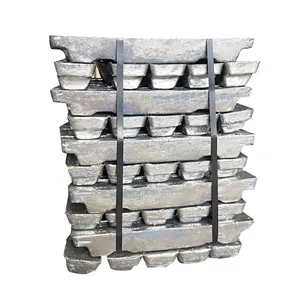Giới thiệu về các loại thỏi
Alibaba.com cung cấp các sản phẩm 939 các loại thỏi. Có rất nhiều các loại thỏi lựa chọn dành cho bạn, chẳng hạn như là hợp kim, không-hợp kim. Bạn cũng có thể chọn từ không-thứ cấp các loại thỏi. Cũng như từ 1000 series, 6000 series, và 8000 series các loại thỏi.Và bất kể các loại thỏi là công nghiệp, luyện kim.














